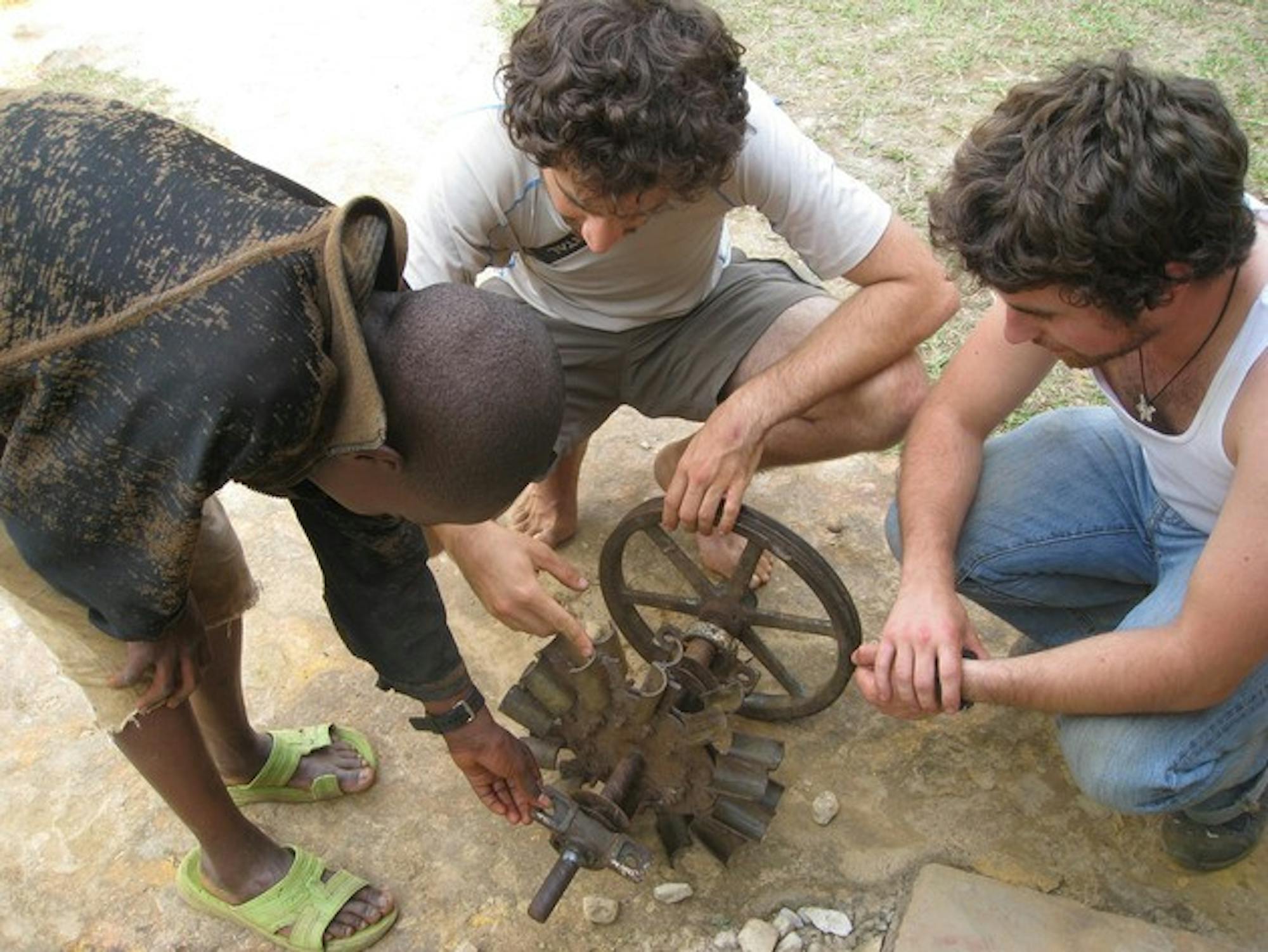Eight students from Dartmouth Humanitarian Engineering stepped off the plane in Kigali, a city whose clean and safe streets contrasts starkly with Rwanda's history of instability and violence, on July 15, according to project leader Joseph Anthony '12. Rural Rwanda a place in which virtually everyone has cell phones but must walk five kilometers to charge them was the students' final destination.
As they drove farther from the metropolis and power grids, huts lit by kerosene and dry grass replaced spacious homes and thriving businesses, DHE president Theodore Sumers '12 said. The group of students prepared to embark on a two-month quest to improve the hydroelectric power in Rwanda's remotest region.
The group returned to Rwanda this summer to fine-tune a turbine that the group had installed in a village in the Banda sector on a 2008 trip, as well as to assess new sites for future hydroelectric construction, Sumers said. The previous group had constructed the turbine out of local scrap metals and although the students had instructed villagers on basic repairs, the machine required more complex weatherproofing and redesign, Sumers said.
"Basically, we were trying to make the whole system more robust," he said.
The introduction of electricity has already greatly improved the Banda sector, and businesses and bars have sprung up that previously only existed in towns on the larger power grid, Sumers said. The DHE team was rewarded for its work in August with a $1,000 cash prize from IEEE, an association that uses technology to solve problems in different communities.
The most important part of the trip was site assessment, according to Anthony. The group plans to build another hydroelectric generator next summer, and possibly two more the following year, he said. In order for a site to be feasible, it must possess a tall and powerful waterfall, a river flowing consistently during both rainy and dry seasons and an terrain that will accommodate construction, according to Anthony. In Rwanda, the last requirement can be difficult to fulfill, he said.
"I'm driving all over the country to these different waterfalls, and the dirt roads wind up around hill after hill," he said. "It was scary they were so steep we would have died if we'd veered."
Knowing negligible Kinyarwanda the official Rwandan language the students relied completely on their drivers, translators and helpful strangers, Anthony said.
"You get out into the villages and you're the biggest thing to happen all year," he said. "We'd stop and ask for directions, and a crowd of people would show up and point and say Mzungu!' which is the Kinyarawandan word for white person."
The language barrier occasionally proved problematic, Anthony said. In one instance, confusion over the Kinyarawandan word for water resulted in an exhausting, multi-mile hike to a completely dry riverbed, he said.
The villagers of Rugote and Banda were "amazingly enthusiastic and helpful," Sumers said. Not only did droves of onlookers escort the engineers everywhere, but village elders exerted their influence to make the turbine repairs a community project, he said. Village leaders declared Umagandas days during which the entire village works together on a communal task to help the engineers gather materials and build the structures necessary for the new turbine.
For the engineering students, the most difficult aspect of the trip was not the hallucinogenic anti-malarials or lack of showers, Anthony said. Instead, it was the knowledge that they would only be able to provide one of the many sites they surveyed with electricity next year.
"Everyone we met was so excited," he said. "I hope we aren't leading them on or building their hopes up, because we can't build at all the sites."
Many non-governmental organizations face disparities between Rwandans' need for improvements and the resources available to meet the demand, Anthony said. Care International, an anti-poverty non-governmental organization that has partnered with DHE in the past, constantly fields requests from Rwandans for roads, powerplants and infrastructure that it cannot provide, he said.
Building partnerships with both NGOs and Rwandan institutions was a key goal of the trip, Sumers said.
"A lot of projects are put in by NGOs, and then the NGO leaves and the site breaks and that's the end of the story," he said.
By combining Care International's consistent presence and logistical resources with DHE's expertise and focus, the groups hope to establish an effective, sustainable model, Sumers said. DHE has also established relationships with the Kigali Institute of Science and Technology, a well-known technical school in Rwanda, and the Rwandan Ministry of Infrastructure, Sumers said.
The IEEE President's Change the World Competition's Outstanding Student Humanitarian Prize, which DHE won in August, may facilitate future relationships with both governmental and philanthropic institutions, Sumers said. Over 200 applicants entered the contest sponsored by IEEE, which is the world's largest technical professional society.
IEEE awarded the prize to students who develop "unique solutions to real-world problems using engineering, science, computing and leadership skills to benefit their community, the world at large, or both," according to the competition's website.
The $1,000 cash prize, while helpful, is the award's least important aspect, Anthony said. The group hopes that the prize will raise awareness of the members' efforts and invite support from both Dartmouth students and the greater world of humanitarianism, Sumers said.
"It's a mark of legitimacy from an extremely well-respected organization," Sumers said. "It says that we do good work, that we have a genuinely innovative idea and that we're reaching a population that's historically difficult to get to."




